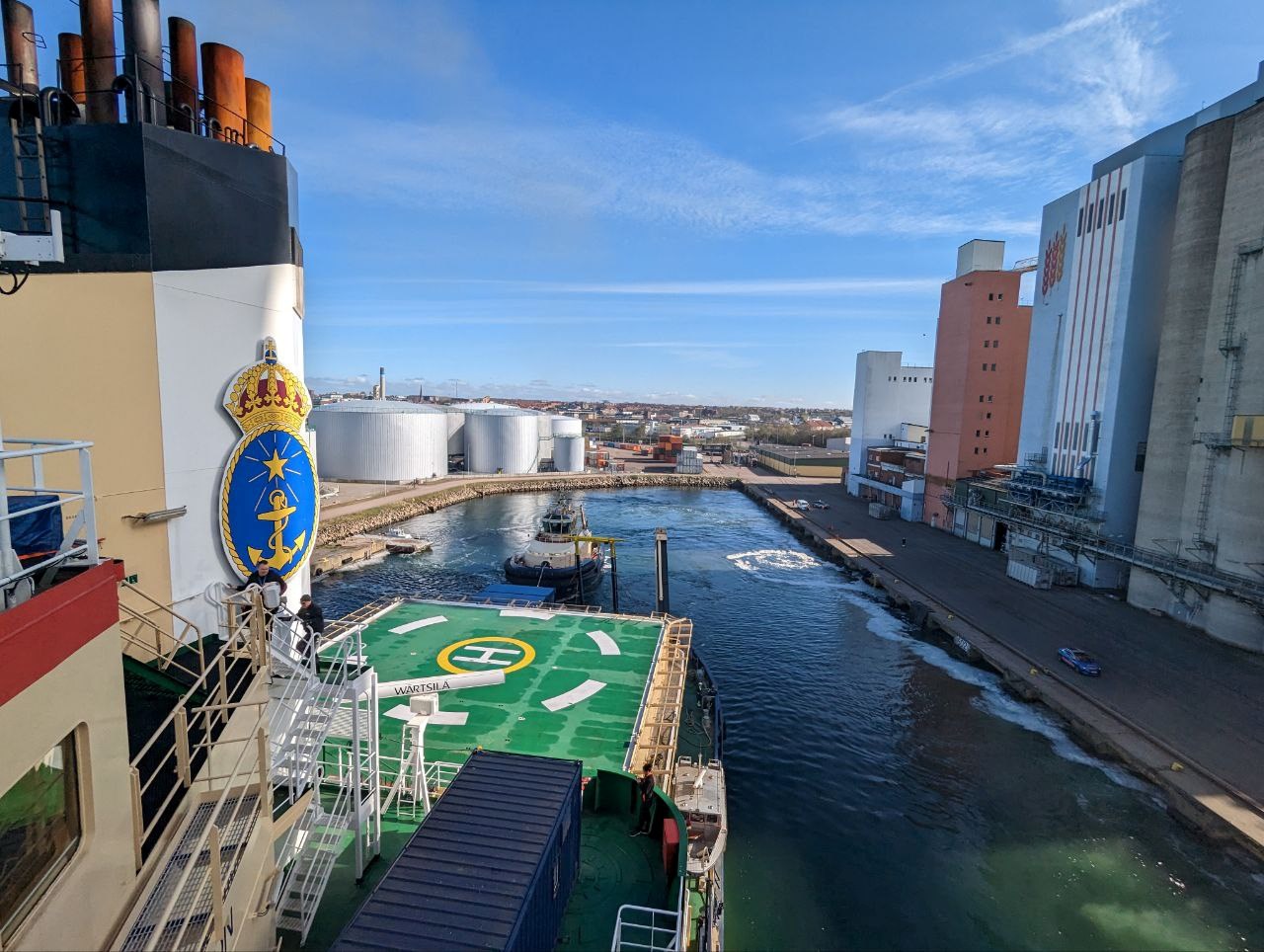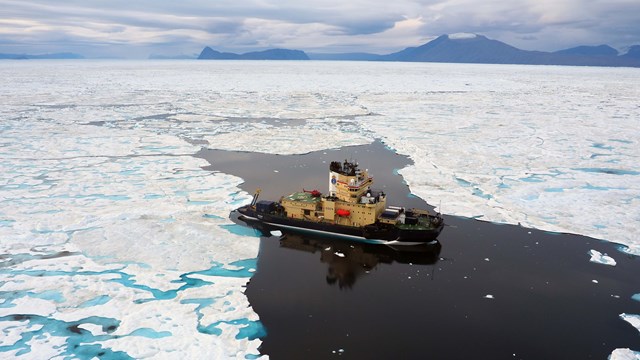Icebreaker Oden departs for Arctic expedition to study onset of melting season

On April 28th, the icebreaker Oden will depart from a Swedish port for the research expedition called ARTofMELT 2023 in the Arctic Ocean. The researchers will study the arrival of spring in the Arctic and the beginning of the melting season.
"The weather is ultimately driven by the temperature difference between the polar regions and the equator. As the Arctic warms up much faster than the rest of the world, the conditions for weather and climate across the entire Northern Hemisphere are changing. The effects of disappearing ice in the Arctic do not stop there," says Michael Tjernström, Professor of Meteorology at Stockholm University.
During the spring, the Swedish Polar Research Secretariat has worked intensively to prepare and adapt the Oden for this early expedition. Recently, the researchers gathered in Helsingborg's port in southern Sweden to load equipment onboard and install research instruments. The expedition also includes Swedish visual artist Ida Rödén, who has been awarded a place in the Swedish Polar Research Secretariat's artist program.
The participants will board Oden in Longyearbyen on Svalbard, Norway, on May 7th, but Paul Zieger from Stockholm University will already be onboard when the Oden departs Sweden on April 28th.
"It's an opportunity to calibrate and start up all the instruments so that we are prepared when the expedition starts for real. We have more than 30 instruments to be used for observing the atmosphere. After a long period of preparation, our journey finally begins, and I look forward to carrying it out along with a team of outstanding scientists from around the world," says Paul Zieger, Associate Professor of Experimental Atmospheric Science at Stockholm University.
After casting off the mooring lines at Longyearbyen on May 7th, the ship is expected to reach the ice edge in the Arctic Ocean within two days. When the Oden is positioned between northeast Greenland, northwest Svalbard, and the North Pole, the "hunt" for powerful, southerly inflows of warm and humid air that are expected to trigger the start of the melting season in the Arctic Ocean will begin. This means that the research expedition lacks a predetermined route. Instead, advanced weather forecasts will determine where the icebreaker needs to be within four to five days.
"Before the ice begins to melt, it is the most challenging to navigate in. This is one reason why there are no observations from this time of year. To more accurately predict future weather and climate, we need to study warm air inflows and their effect on Arctic snow and ice," concludes Michael Tjernström.
The research expedition ARTofMELT2023 (Atmospheric Rivers and the Onset of Sea Ice Melt 2023) is organized by the Swedish Polar Research Secretariat and is conducted with the icebreaker Oden leased from the Swedish Maritime Administration. The expedition involves 38 researchers from 19 organizations in 10 countries. Sweden is represented by 14 researchers from Stockholm University, Gothenburg University, Chalmers University of Technology, and Lund University. The research on board the Oden is led by Chief Scientist Michael Tjernström, Professor of Meteorology at Stockholm University, and Co-Chief Scientist Paul Zieger, Associate Professor of Experimental Atmospheric Science at Stockholm University. ARTofMELT 2023 will run from May 7th to June 15th.



